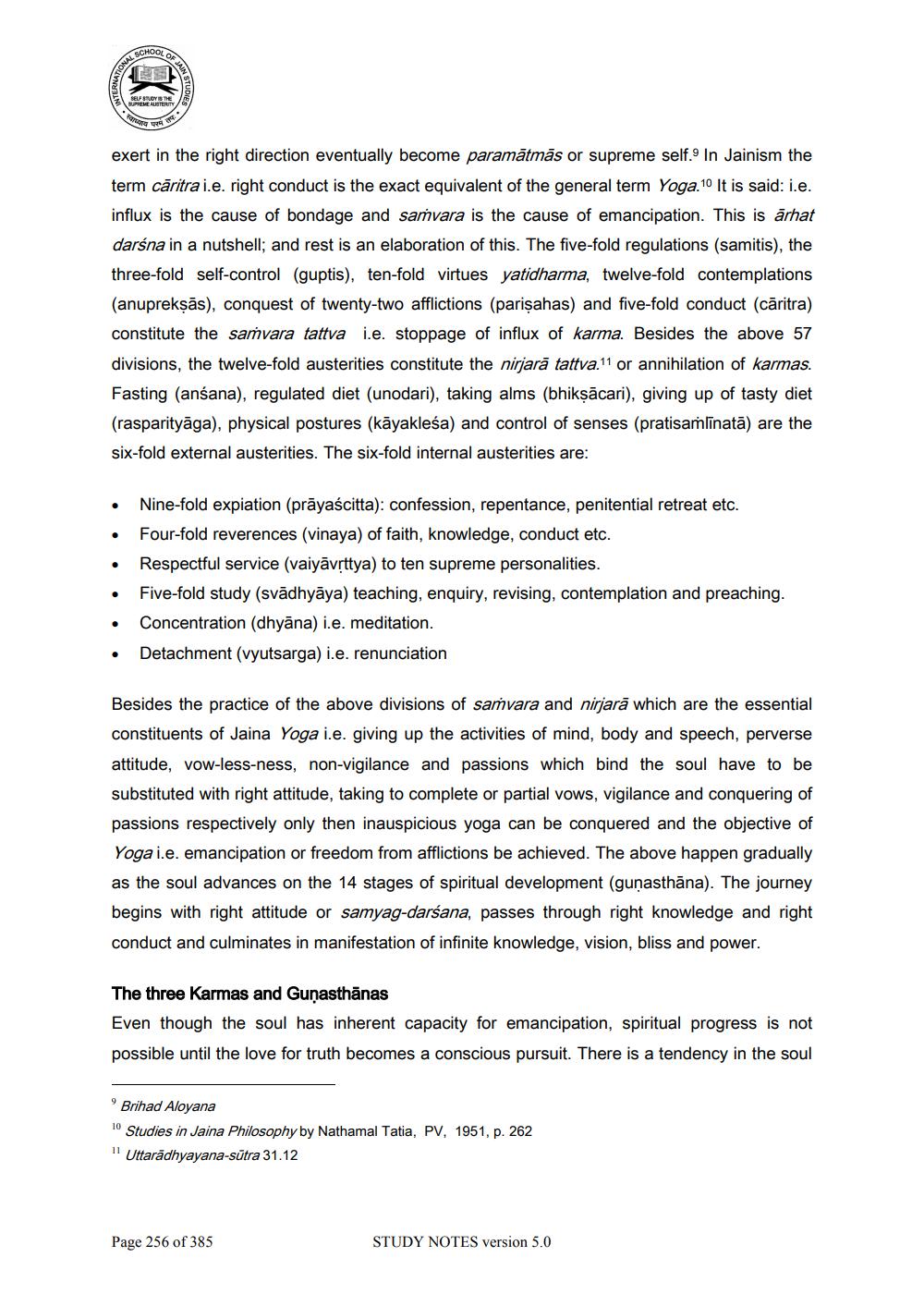________________
INTERNATION
SCHOOL
•
OF
SELF STUDY IS THE SUPREME AUSTERITY
परम
• स्वाध्याय
AN STUDIES
exert in the right direction eventually become paramātmās or supreme self. In Jainism the term caritra i.e. right conduct is the exact equivalent of the general term Yoga.10 It is said: i.e. influx is the cause of bondage and samvara is the cause of emancipation. This is ārhat darśna in a nutshell; and rest is an elaboration of this. The five-fold regulations (samitis), the three-fold self-control (guptis), ten-fold virtues yatidharma, twelve-fold contemplations (anuprekṣās), conquest of twenty-two afflictions (parişahas) and five-fold conduct (căritra) constitute the samvara tattva i.e. stoppage of influx of karma. Besides the above 57 divisions, the twelve-fold austerities constitute the nirjara tattva.11 or annihilation of karmas. Fasting (ansana), regulated diet (unodari), taking alms (bhikṣācari), giving up of tasty diet (rasparityaga), physical postures (kāyaklesa) and control of senses (pratisamlinatā) are the six-fold external austerities. The six-fold internal austerities are:
Nine-fold expiation (prāyaścitta): confession, repentance, penitential retreat etc.
Four-fold reverences (vinaya) of faith, knowledge, conduct etc.
Respectful service (vaiyavṛttya) to ten supreme personalities.
Five-fold study (svādhyāya) teaching, enquiry, revising, contemplation and preaching. Concentration (dhyāna) i.e. meditation.
Detachment (vyutsarga) i.e. renunciation
Besides the practice of the above divisions of samvara and nirjara which are the essential constituents of Jaina Yoga i.e. giving up the activities of mind, body and speech, perverse attitude, vow-less-ness, non-vigilance and passions which bind the soul have to be substituted with right attitude, taking to complete or partial vows, vigilance and conquering of passions respectively only then inauspicious yoga can be conquered and the objective of Yoga i.e. emancipation or freedom from afflictions be achieved. The above happen gradually as the soul advances on the 14 stages of spiritual development (guṇasthāna). The journey begins with right attitude or samyag-darśana, passes through right knowledge and right conduct and culminates in manifestation of infinite knowledge, vision, bliss and power.
The three Karmas and Gunasthānas
Even though the soul has inherent capacity for emancipation, spiritual progress is not possible until the love for truth becomes a conscious pursuit. There is a tendency in the soul
9 Brihad Aloyana
10 Studies in Jaina Philosophy by Nathamal Tatia, PV, 1951, p. 262
11 Uttaradhyayana-sūtra 31.12
Page 256 of 385
STUDY NOTES version 5.0




